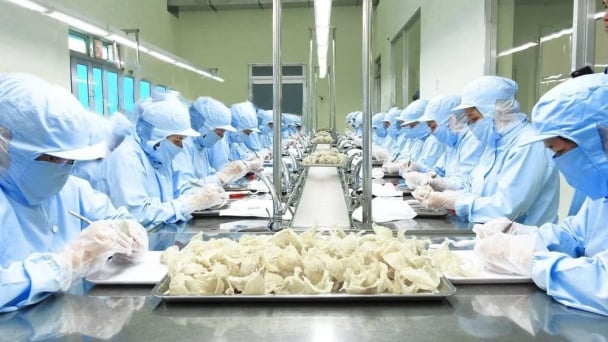May 15, 2025 | 10:20 GMT +7
May 15, 2025 | 10:20 GMT +7
Hotline: 0913.378.918
May 15, 2025 | 10:20 GMT +7
Hotline: 0913.378.918
Europe's coffee supply heavily depends on millions of smallholder farmers worldwide, making ensuring every shipment meets these stringent new regulations is a significant challenge.
According to Bloomberg, traders are racing to bring in as much coffee as possible before the EUDR goes into effect on December 30, 2024. After 2024, coffee imports into Europe are expected to decline as exporting countries must comply with traceability requirements, potentially driving up global coffee prices.
In the first seven months of 2024, coffee exports from Brazil to the EU surged by about 65% compared to the same period last year.
Meanwhile, Uganda is emerging as a key supplier of Robusta coffee to Europe after supplies from Vietnam – the world's largest Robusta producer – dropped sharply due to dry weather conditions. Uganda has reached record-high coffee export levels, with the majority of its shipments headed to Europe.
Cameroon is also moving quickly to meet traceability requirements, with about 80% of its cocoa and coffee production now compliant with the EUDR, according to Reuters. This includes cocoa farms that have been geo-referenced by operators to confirm that their cultivation areas have not caused deforestation or land degradation since December 31, 2020.
European roasters are rushing to stockpile coffee in anticipation of a potential supply shortage in the first quarter of 2025, says Ricardo Dos Santos, senior director of UK coffee supplier Riccoffee. Traders are pushing to ship as much coffee as they can to Europe before the EUDR's enforcement, as uncertainty looms with the EC yet to finalize all the details of the regulation's implementation, according to Holger Preibisch, director of the German Coffee Association.
Translated by Quynh Chi

(VAN) Japan's efforts to lower the price of rice through the release of its stockpile may finally be making some progress, albeit at a snail's pace.

(VAN) U.S. tariffs are not only a 'shock', but also an opportunity for Vietnamese businesses to renew their mindset toward comprehensive development.

(VAN) As Bac Giang lychee enters the harvest season, Minister Do Duc Duy expects that the fruit will contribute greatly to agricultural exports due to standardized production and deep processing.

(VAN) Consumers have shown a preference for free-range eggs, but those farming systems are more vulnerable to biosecurity risks like bird flu.
/2025/05/09/5701-1-184335_301.jpg)
(VAN) Vietnam’s eel exports nearly doubled thanks to a mud-free farming model, opening up new prospects while still facing numerous barriers related to international standards.

(VAN) Minister Do Duc Duy warned that if production is not professionalized and supply chains are not transparent, the U.S. market could become a growth bottleneck.

(VAN) Delegating surveillance responsibilities to local authorities is a cost-saving and efficiency-boosting measure that removes a key bottleneck for enterprises, according to Director General Duong Tat Thang.